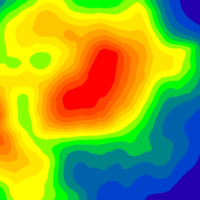Thermal Analysis
This branch of analysis revolves around the physical and chemical changes that occur to a sample as the temperature of the sample is changed.
In the case of Thermogravimetric analysis (TGA), a sample is heated up to 1000°C (or higher) and the weight loss of the sample is measured as a function of time. The sample is generally only 5mg or so in weight and the heating operation can be a temperature ramp or a fixed temperature. More complicated systems can vent the off-gas from the heating operation to an FTIR or mass spectrometer to identify the evolved species.
Differential Scanning Calorimetry (DSC) compares the amount of heat required to heat a sample vs that of a reference material as a function of temperature. This allows measures of heat capacity, glass transition temperatures as well as phase transitions and crystallization events.
These forms of analyses are very important to wide range of subjects including polymer chemistry, drug analysis, catalysis and protein chemistry to name a few.
